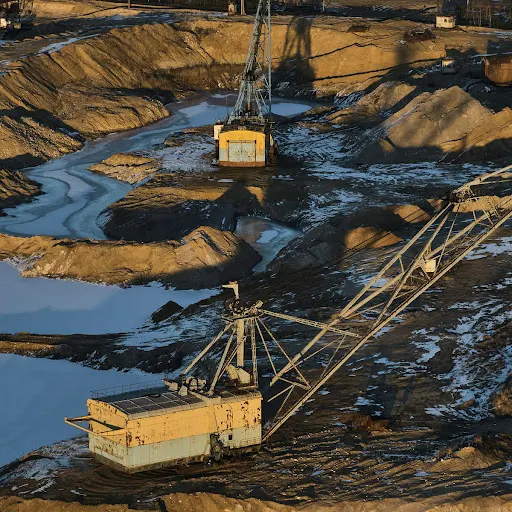By Ephraim Agbo
For years, the West has framed its support for Ukraine as a noble fight for democracy, sovereignty, and freedom against Russian aggression. Billions of dollars in military aid, sanctions on Russia, and unwavering political backing—all in the name of defending Ukraine.
But now, a new reality is emerging. As both the European Union (EU) and the United States (U.S.) demand a cut of Ukraine’s vast rare earth mineral reserves, the question must be asked:
Was the real reason for supporting Ukraine always about its resources?
The EU’s “Friendly” Takeover: A Colonial Handshake?
European Commissioner for Industrial Strategy, Stéphane Séjourné, recently visited Kyiv to mark the third anniversary of Russia’s invasion. While there, he unveiled the EU’s proposal: a “mutually beneficial” partnership in which Ukraine supplies 21 of the 30 critical minerals the EU desperately needs.
Séjourné reassured Ukraine, saying, “The added value Europe offers is that we will never demand a deal that’s not mutually beneficial.”
Sounds generous, right? Except, the EU isn’t offering charity—it’s securing its own survival. With China tightening its grip on global rare earth supplies, Europe is scrambling for alternatives, and Ukraine is now its last best hope.
The problem? This so-called partnership feels a lot like a modern colonial resource grab. If the deal is so “mutually beneficial,” why isn’t the EU investing heavily in Ukraine’s mining industry before extracting its resources? Instead, the bloc is behaving like a desperate landlord—offering a handshake while quietly securing the deed to the house.
And now that Ukraine’s minerals are on the table, a darker thought arises:
Was Europe’s overwhelming support for Ukraine ever really about fighting Russia, or was it always about securing its raw materials?
Keynotes:
- The EU needs Ukraine’s minerals to reduce dependence on China.
- The deal is being framed as a "partnership" but could be a resource grab.
- Europe’s support for Ukraine may have been more about securing materials than democracy.
Trump’s America First: Business or Blackmail?
If Europe’s approach is subtle, the U.S. under Donald Trump is anything but. His administration has outright demanded that Ukraine hand over 50% of its rare earth mineral reserves as “compensation” for American military aid.
No partnership, no investment—just a blunt demand.
Kyiv’s Mayor, Vitaly Klitschko, has called Trump’s proposal “unfair”, warning that such a deal would turn Ukraine into an economic colony of Washington. The message from Trump is clear: Ukraine must pay up or lose support.
This isn’t diplomacy—it’s mafia politics on a global scale. It also raises a troubling question:
Was Ukraine’s military aid always a debt waiting to be collected?
Keynotes:
- Trump’s approach is transactional—Ukraine must pay back aid with minerals.
- The demand for 50% of Ukraine’s rare earth reserves is extreme.
- Ukraine risks becoming an economic colony of the U.S. if it agrees.
Ukraine’s Dilemma: Sovereign State or Looted Playground?
President Volodymyr Zelenskyy is in an impossible position. Ukraine desperately needs Western aid, but handing over its vast mineral wealth would mean surrendering its economic future.
So what are Ukraine’s options?
- Give in to the U.S. and become nothing more than a raw materials supplier with no control over its own resources.
- Sell out to the EU and pretend it’s a “partnership” while Europe mines Ukraine at bargain rates.
- Try to play both sides and risk alienating both, while Russia watches and waits.
One thing is clear: Ukraine is not being rescued—it is being sold off.
Keynotes:
- Ukraine is under pressure to give up its minerals but must protect its sovereignty.
- Accepting either deal could make Ukraine a resource colony.
- Balancing both sides without losing independence is critical.
Is Ukraine a Pawn or a Kingmaker?
The worst part? Ukraine actually holds all the cards—yet it is allowing itself to be played. The world needs its rare earth minerals far more than Ukraine needs Western approval. Instead of bending to external demands, Ukraine should be setting its own terms:
- No deals without direct investment in Ukrainian mining infrastructure.
- No single country gets more than a minority stake in its reserves.
- All agreements must benefit Ukraine’s long-term economic security—not just Western supply chains.
Ukraine fought for its independence from Russia. But now, if it’s not careful, it could find itself simply trading one form of subjugation for another.
So let’s ask the real question again:
Was this war ever about democracy, or was it always about securing Ukraine’s resources?
Now that the EU and U.S. are making their demands, has the real reason for Western support finally been unveiled?
Keynotes:
- Ukraine has leverage but isn’t using it wisely.
- It should dictate the terms, not just accept what’s offered.
- Without careful negotiation, Ukraine could swap Russian control for Western control.
What do you think? Is Ukraine being played, or does it have the power to turn the tables? Let’s discuss in the comments!
Enjoyed this piece? Subscribe to Ephraim Agbo’s Blog for more deep dives into global politics, economics, and power struggles.












No comments:
Post a Comment